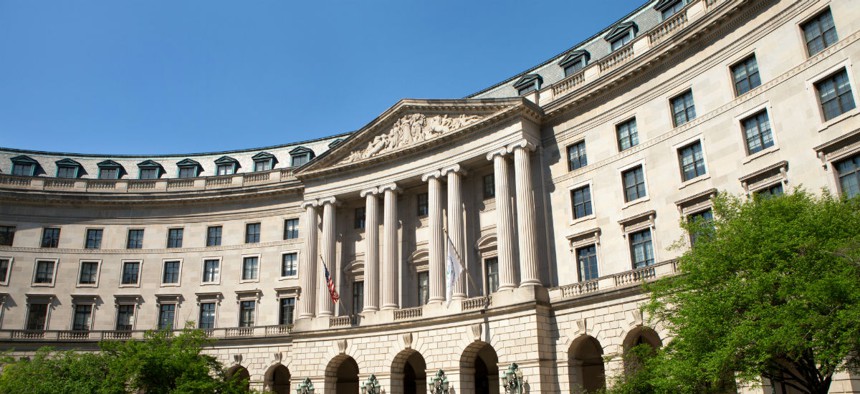
Yet Another Lawsuit Demands Greater Transparency at EPA
Environmental activist files complaint seeking FOIA’d documents on regulatory reform.
A Charlottesville, Va.-based environmental legal group on Wednesday became the latest outsider to take the Environmental Protection Agency to court over its alleged lax compliance with Freedom of Information Act obligations.
The Southern Environmental Law Center, which for 30 years has litigated on behalf of citizens in six states, filed suit in District Court for the Western District of Virginia to force EPA to disclose requested documents related to President Trump’s executive order requiring reviews to identify regulations that could be abolished or narrowed.
The group has been negotiating with the agency for six months without result, it said. “It’s already absurd to have an arbitrary directive to strip away commonsense environmental protections, but to refuse to share any information about this process is alarming and simply un-American,” said Kym Hunter, staff attorney at the center. “President Trump and [Administrator] Scott Pruitt are creating a hit list of health, safety and environmental protections, and they are doing this behind closed doors.”
EPA missed the statutory deadline for responding within 20 days to the center’s April FOIA request, so the group “filed an administrative appeal with the agency, even though FOIA does not require this step,” the complaint said. “EPA has not provided any information or otherwise made further determinations on SELC’s request.”
The group is seeking a declaration that EPA has violated FOIA and an order requiring the agency to provide “all nonexempt, responsive documents without further delay.”
The move comes just weeks after Democratic lawmakers led by Rep. Elijah Cummings, D-Md., ranking member of the House Oversight and Government Reform Committee, wrote to the White House complaining that Trump’s regulatory task forces at EPA and other agencies are being “conducted in large part out of public view and often by political appointees with deep industry ties and potential conflicts.”
EPA did not respond to requests for comment by publication time.
EPA is also in a legal battle with the nonprofit Natural Resources Defense Council, which in May filed suit in federal district court in New York to order Pruitt to release documents pertaining to alleged conflicts of interest “with respect to any EPA lawsuit in which Oklahoma, his former client, is a party, and whether he is favoring stakeholders that share his ideology concerning regulatory matters.” NRDC said it has received no EPA responses by the statutory deadlines.
NRDC in February was joined by the liberal consumer group Public Citizen and the Communications Workers of America in a separate suit challenging the constitutionality of Trump’s directives in January and February to require agencies to cancel two regulations for every one introduced.
In June, the nonprofit American Oversight included EPA among its multiple agency targets when it filed suit to force EPA to release communications from White House adviser and billionaire investor Carl Icahn (who recently left the Trump team) and calendars and telephone logs from Pruitt and other EPA leaders. “It seems Mr. Icahn, like so many other Trump administration officials, may be using his position for his own personal financial benefit,” said American Oversight Executive Director Austin Evers.
Groups on the right are also targeting EPA for greater disclosure. The legal group Judicial Watch in June filed a complaint in U.S. District Court to force EPA to release Obama-era documents pertaining to the agency’s alleged illegal use of a social media platform for “propaganda” in defending a clean water rule.
And the conservative-leaning group Cause of Action back in February filed FOIA requests to force EPA to disclose documents under federal records laws relating to employee use of encrypted phones to communicate personal views on agency actions.







